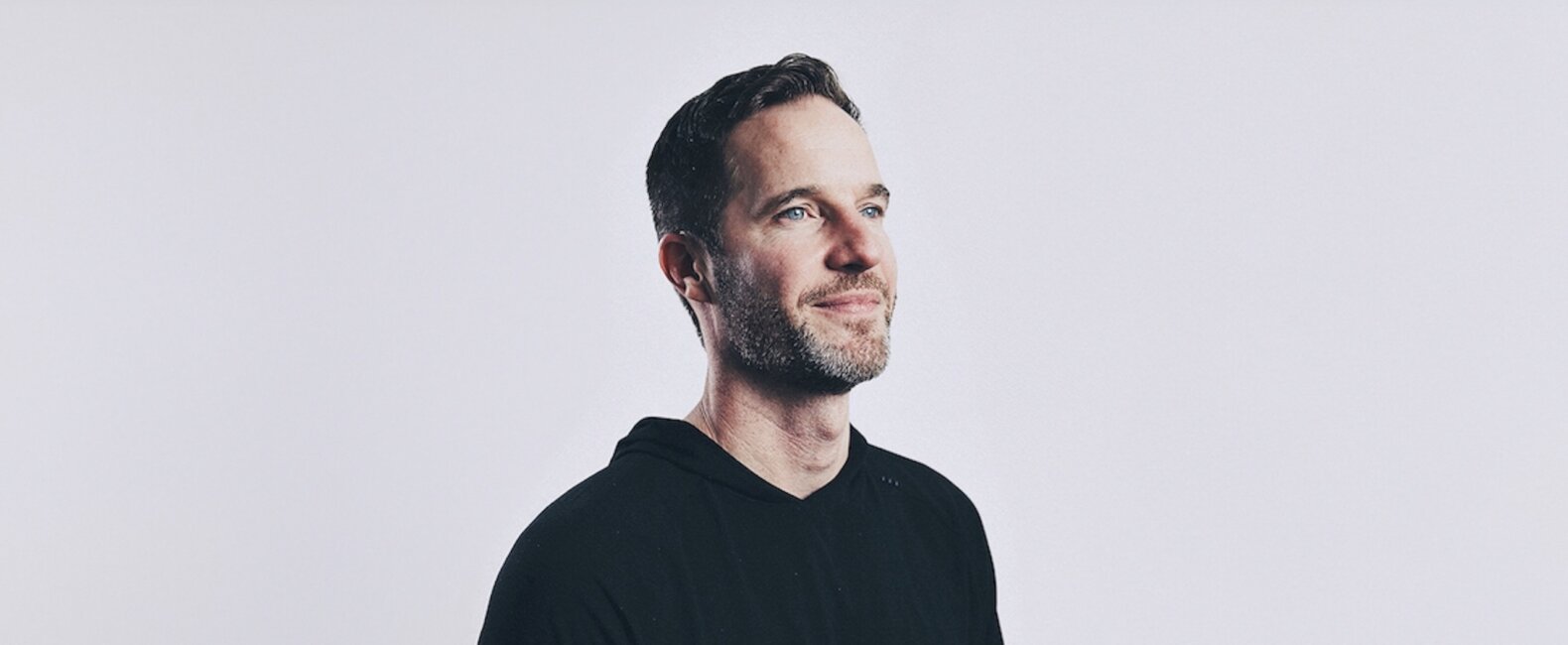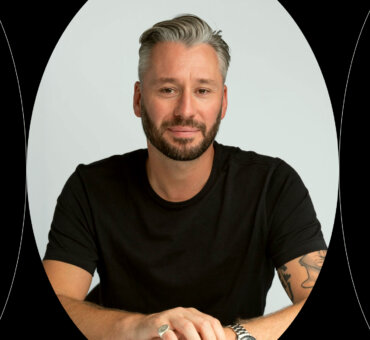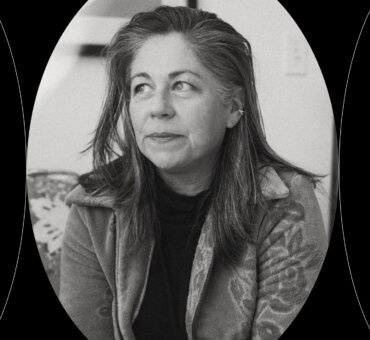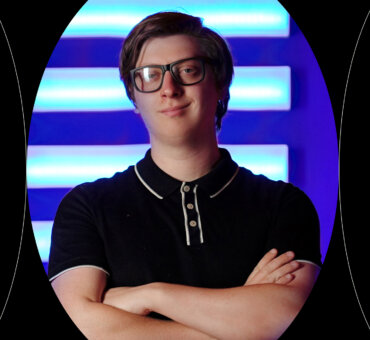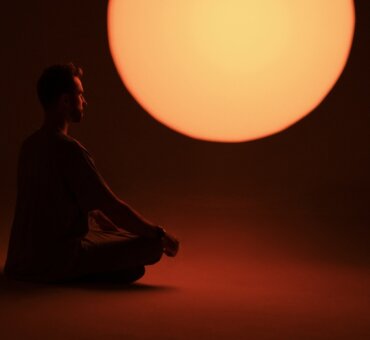Creative director and filmmaker Brian Curtin has worked with clients like Daytona 500 and Valvoline, and his captivating short films have earned him CLIOs, Vimeo Staff Picks, and more. Hear more from the Alabama-based filmmaker on his storytelling essentials, his advice for aspiring filmmakers, and how he finds the right music for his short films on Musicbed.
Musicbed: What sparked your passion for filmmaking/storytelling?
Two moments sparked this passion. The first came from experiencing movie classics at an early age. Star Wars, Indiana Jones, Goonies, and Dune (I’m talking about the originals) are just a few. There were so many fun characters and adventures to experience, all pushing the boundaries of filmmaking. Seeing these in the theater added to the experiential entertainment. The way these movies handled practical effects influenced my approach to VFX. Practical is always better 99% of the time, but sometimes you need CG VFX depending on the project. The second moment came from story-driven video games. The advancement of immersive games allowed you to be a true participant in these compelling stories. Half-Life was the first game I remember sparking my exploration into design and filmmaking. The story wasn’t revolutionary, but it was perfectly balanced for the immersion. The world design and tone created for the game were masterful. At that time, nothing before had perfectly paired those elements. I love how technology has created different vessels in which we can experience great stories.
What keeps you motivated and creatively inspired?
Seeing the work of my peers. There are so many talented people doing incredible projects. I find myself less in theaters and more on Vimeo and YouTube. The content is saturated there and it can be overwhelming to find something that speaks to you, but you can find inspiration if you know where to look. Also, most artists will agree we all inherently have a “creative itch”. That drive to “create” something without any outside encouragement. Some have it stronger than others. It can’t be controlled, it can be fed and harnessed, but it’s always there.
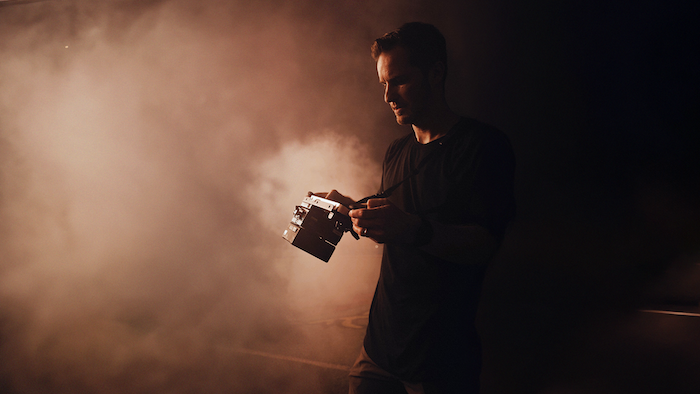
What makes a story visually appealing? What role does music play in storytelling?
I’ve worked for many years in the commercial world. The debate is always about how much can you “say” without saying a word. Referencing the quote “A picture is worth a thousand words”. The visual style or approach to conveying a story is inseparable. It’s a dance, the story and visuals need to complement each other. Plus, it’s easier to dance when there’s music. Music becomes the glue between all the pieces helping it all flow. With that said, I’m always drawn to moments where the visuals speak louder than words. Music becomes a voice—without saying too much. There’s more power in allowing the viewer to distill the actions and form their own interpretation, rather than spoon-feeding the message. It’s like leaving one puzzle piece missing and allowing others to complete the picture themselves. Injecting their perspective also makes it all the more memorable.
What elements do you think are essential for crafting a compelling story?
Someone could write a full masterclass on just this question, it’s a big one. I’ll keep mine simple with one element: make the audience care. A story is only compelling if the viewer is willing to invest attention and care. Whether it’s the characters, the journey, the struggle or the fantasy, they are all dependent on that. A lot of that “care” is produced in the execution and delivery. As I mentioned above, leaving room for the viewer to inject themselves into the story is important. It’s compelling to leave the story open-ended or keep the viewer “wanting more”. That’s why I gravitate towards short-form content.
How important is music in your work?
Music is a pillar in my projects. I secretly refer to it as a cheat code. Music is the most powerful tool to quickly convey how the audience should feel. It demands a subconscious reaction. It’s the sidekick to the story, helping lead the audience in the direction you want. I often have a song in mind before flushing out a story or message. It feels wrong, but often I have music as a foundation that influences the trajectory of a piece. Besides the emotional effects, it has technical benefits. Music helps guide the pacing and structure of an edit which often reveals unique approaches originally unforeseen. There are two ways I approach song selection. Typically I’m looking for something that perfectly compliments the style, tone, and story. But the other direction is finding a song to juxtapose the scene. It’s like walking a tightrope, it’s a fine line. There’s beauty in the contrast if you can make it work.
What advice would you give other filmmakers/creators who are just starting their careers?
Listen to your creative itch. An idea or story will sit in your brain. If it keeps coming back and won’t go away, you be compelled to act on it. That desire to see it come to life will drive you to find a way to act on it. Lean on your strengths and make something. There are endless technical resources online and we all have incredible cameras on our phones. It won’t be easy, you’re guaranteed to doubt yourself but making a film has never been easier “technically”. Lastly, rely on others for help. Passion is infectious and talented people are willing to jump on board if they see you are hell-bent on climbing the steep hill.
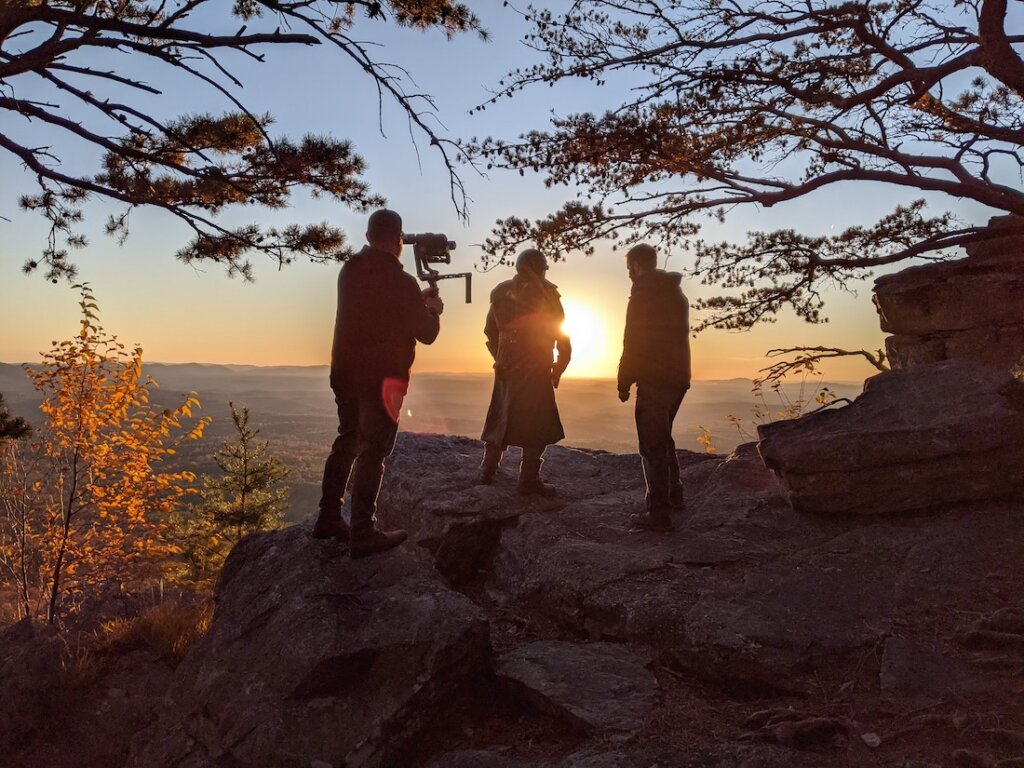
How do you find the balance between pushing boundaries creatively and delivering what your client wants or audience wants to see?
I’ll be very honest with this one. 95% of the time I’m only able to push boundaries with my passion projects. That’s why I do them. Creative freedom is incredibly powerful in growth and it’s rare to find that with client work. The requests, budgets, and timelines often dictate the restrictions. Every so often a unique client with great taste comes along and those opportunities are amazing. If you feel like you’re unhappy with the collection of your client’s work, I would strongly suggest creating a project for yourself. Flex those creative muscles. It’s much easier to learn something new or push boundaries when you believe in it.
What is the most challenging aspect of being a filmmaker/creative?
That’s it, being creative—all the time. Daily. As a professional, you have to find ways to set yourself up for inspiration to find you. The better you can be physically, mentally, and emotionally healthy helps. The healthier you are there helps prevent the stresses of “creating” from draining your creativity. It’s definitely a marathon, not a sprint. Mental and physical endurance is important. Specifically for filmmaking, I’m amazed at how any movie or commercial gets made. There are a million moving pieces that have to synchronize. Surrounding yourself with talented and passionate people will help lasso all the pieces.
What are some of your favorite projects you’ve worked on?
My favorite project is typically my most recent passion project. The live-action concept trailer I did for Bethesda’s game ‘Fallout 76’ was incredibly fulfilling. Since it was a personal project, there was full creative freedom. I worked with talented friends and focused on a subject matter I really enjoyed. We utilized a lot of props/costumes and visited a bunch of incredible locations. Plus, the ‘Fallout’ world has a very distinct vintage tone musically. Thankfully Musicbed has a plethora of authentic vintage tracks. I was able to use classic-sounding music on a smaller budget. It’s wonderful when all the pieces come together, short-form live-action video game adaptations are my sweet spot. One of my most influential projects was created at Big Communications. It was a series of lifestyle spots for Valvoline. We made motor oil exciting with style and authenticity. Capturing the visceral emotions infused into car culture. We filmed for multiple days around California. I had the privilege to work with Salomon Ligthelm and Kate Arizmendi. The stars aligned for a group of talented people coming together. I was reminded that there are a million ways to approach a problem and everyone will have their own approach. I had a new approach to Directing after this experience. Having a “vision” is mandatory. How is your crew able to support you if you don’t do what you envision? Then knowing how to communicate it in your own way.
How do you search for music on Musicbed? What are some tips that you’d give other filmmakers to search on Musicbed?
I regularly dig around on Musicbed and constantly save songs to my favorites. I try to keep up with the new releases and spotlight artists. Build up that “favorites” collection and it’ll become a Mary Poppins bag to randomly pull out music. I don’t have any tricks in the actual search process. It’s more of keeping up with an arsenal of music.
Why do you utilize Musicbed in your work?
First off, the Musicbed collection is VAST. The variety is mindblowing, especially when you’re doing different types of projects weekly/monthly. As I mentioned before, I have not found a better collection of “vintage” music. Secondly, the quality of the music is top-tier. The term “stock music” doesn’t really apply when it sounds this good.
—
Explore a curated playlist of Brian’s favorite songs to use in his captivating short films—all available to license only on Musicbed.















































































